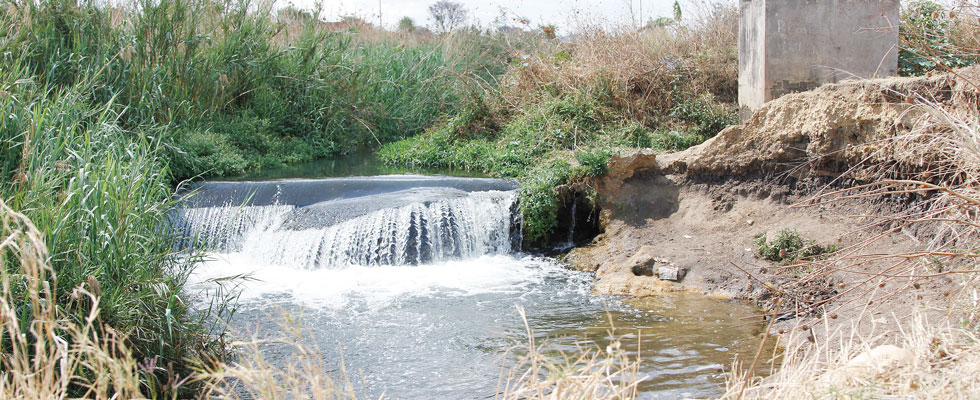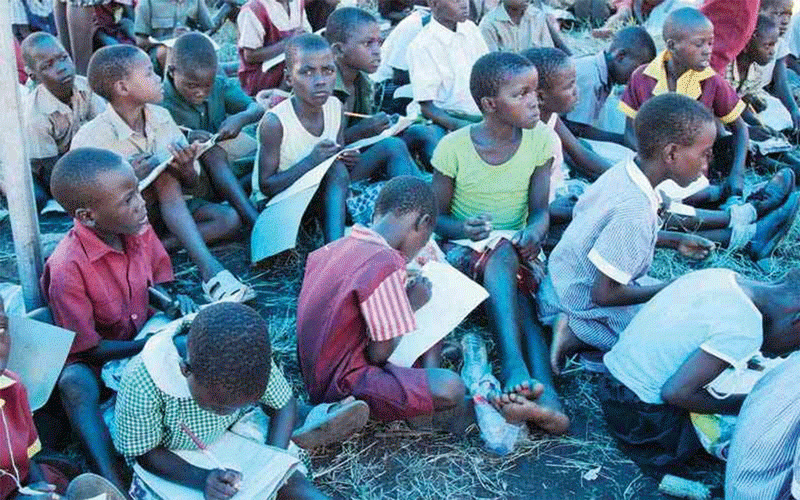
During a news conference in 1999, Lloyd Axworthy, the then Canada’s Foreign minister, aptly said “Water has become a highly precious resource. There are some places where a barrel of water costs more than a barrel of oil.”
By Moses Matenga
In Harare, a river called Mukuvisi, which is suffocating with pollutants from sewer and other industrial chemicals, has assumed the status of a time bomb waiting to annihilate the nearby community of Mbare.
In the absence of potable water from council taps, it is ironical that this polluted river has become a “life giver” to families of Shawasha, Matererini and Majubheki flats in Mbare, Harare’s oldest suburb.
It is a health hazard, but the only way to survive as Harare’s dire water situation continues unabated.
Mary Chaunza, a Shawasha Flats resident who works in the city, described Mukuvisi as a melting pot of everything bad — from prostitution, a health hazard, immorality and worse still, homes have been created on the river banks.
“I walk to work every day and what I see at Mukuvisi River is terrible. There are street urchins who have made the river banks their home. I also see adult men and women bathing in the dirty water. You can’t blame them. This has become our only hope as water supplies are not reliable and the boreholes in most cases are dysfunctional,” she said.
The road to work takes Chaunza past Mukuvisi River, through the edges of Matapi Police Station where she has to jump over raw excreta, used condoms, empty bottles of the notorious Bron Cleer, a potent alcoholic syrup, and a lot of dirty clothes.
- Chamisa under fire over US$120K donation
- Mavhunga puts DeMbare into Chibuku quarterfinals
- Pension funds bet on Cabora Bassa oilfields
- Councils defy govt fire tender directive
Keep Reading
Half a kilometre from Mukuvusi River, the “normal life” at Mbare flats belies the fact that smartly dressed residents and laundry fluttering in the wind are both a result of the polluted river.
However, a closer look and a trip around the dilapidated flats reveals small, dirty kingdoms along the road that leads to the river.
To add to the environment degradation, young men dig up the rich red soil around the flats to sell to gardeners from neighbouring suburbs.
The resultant holes will soon become breeding ponds for mosquitoes as the rainy season is approaching.
In another part, buckets full of water from Mukuvusi find their way to big, black pots that are used to boil a delicacy called mazondo (trotters), which is popular with patrons who frequent unlicenced drinking spots.
For some, a makeshift bridge that connects Mbare to the other side of the river is an investment as the NewsDay crew found out that a fee of 50 cents is charged for one to pass through the infrastructure.
On another day, a new route from the flats to the river was used.
This time, Chaunza’s route was the one where the team encountered street urchins — male and female — who had just washed their clothes and were relaxing by river banks, while smoking cigarettes in their “homes” made from dry reeds.
There are never shortages of “building materials”, as Magaba, a home industry just a stone’s throw away, dumps unwanted assortment of scrap material into the river.
Along the river banks, raw sewage flows unobstructed.
Two naked people continued bathing in the river in animated conversation as the news crew passed by.
For Mukuvusi, the abnormal has been normalised.
Nearby factories in Graniteside also uses Mukuvisi as a dumpsite, exposing not only the river and the creatures that rely on the river, but also human beings to toxic matter.
NewsDay findings were augmented by the Youth Forum Zimbabwe that said: “Mukuvisi River is now one of the dirtiest rivers in the country — a likely victim of residents and businesses dumping waste in the river, choking it to death.”
Mukuvisi River, from its source around Cleveland Dam on the eastern part of the city — cutting through the Msasa industrial sites — moves close to the city and snakes its way via Graniteside and Mbare industrial sites before finally receiving more heavy industrial waste between Highfield and Waterfalls on its way to the larger Manyame River.
In short, Mukuvisi River is dying with dire consequences for the capital city.
“Environmentalists are warning Harare residents to avoid bathing using water from the capital’s most famous river because of fears that it has been contaminated by industrial and chemical wastes likely to cause skin infections,” the forum warned.
Given the situation at Shawasha and other nearby flats that rely on Mukuvisi for water, Harare Residents’ Trust (HRT) said the water crisis had been worsened by the high number of people who share a single room.
Nine people on average, according to HRT, stay in one room in Mbare.
Pretty Chabuda, an official with HRT, said: “Water sometimes is available on some floors, but doesn’t get to the other floors. Considering that an average of nine people stay in single rooms, it can be problematic.”
A resident at the flats, Petros Dzawo, confirmed that the scarcity of water had driven people to Mukuvisi River.
“We use Mukuvisi water for a number of things, including bathing and washing clothes. We rely on that for daily use,” he said.
Council spokesperson Leslie Gwindi said the city was aware of the problems and the health hazard in Mbare and Mukuvisi, but was optimistic the situation would be addressed.
“The situation is still bad, but our new approach in this new dispensation is to make sure that it is addressed in the five-year plan. The new government and council want to make sure there is decent housing for people and we are working towards that,” he said.
Former mayor Muchadeyi Masunda last year conceded that the hostels in Mbare should be left for singles, while those who were married got alternative accommodation.
In July last year, Local Government minister Ignatius Chombo indicated that government had plans to pull down the 58 shanty hostels including Matapi, Nenyere, Shawasha, Mbare and Matererini, originally built to house black migrant labourers during the colonial era.
This has, however, became so contentious that the plans were abandoned midway, with calls for the over 56 000 inhabitants to be relocated before bringing down the hammer on their dwellings.
Another ambitious reconstruction project envisioned by the Bill and Melinda Gates Foundation had to be shelved midway after incessant interference by the Zanu PF–aligned shadowy group, Chipangano, after its members demanded a stake in the project.
Whether those who rely on Mukuvisi River for their day-to-day activities will survive to tell the tale, or whether the creatures, if they are still any, surviving in the river will continue to survive, only time will tell.











